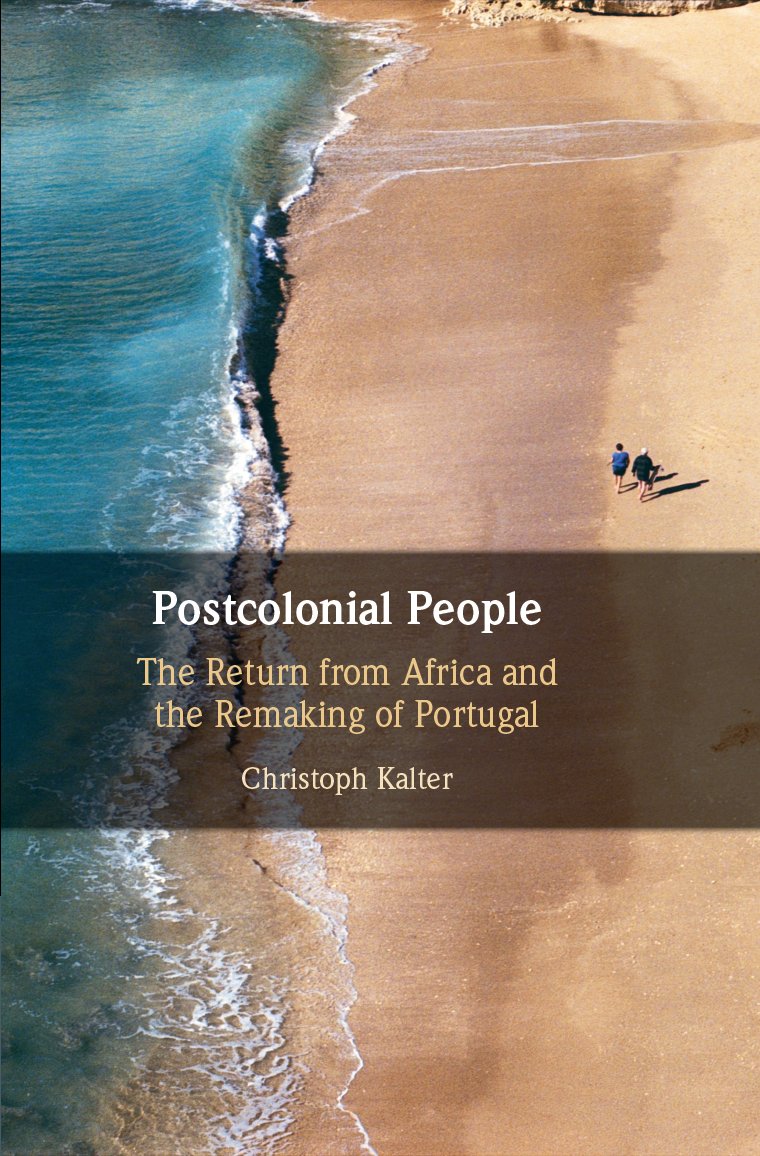
1/ My new book “Postcolonial People” is out with @cambUP_History! A study of #decolonization & #migration, it looks at the history & memory of ‘retornados,’ i.e., settlers returning from Portugal’s African colonies after the 1974 Carnation Revolution. tinyurl.com/ycktaf6k 

3/ I am stoked to have received endorsements from four outstanding historians, all of whom I have learned from immensely. They express so elegantly what the book is about: 

4/ Now, let’s talk money: Unfortunately, you need to inherit, rob a bank, or get rich trading cryptocurrencies if you want to afford the book. The price is prohibitive. But maybe your institution can buy it? tinyurl.com/ycktaf6k
6/ And here’s what to expect:
7/ Whom is the book about? The “returnees” were more than half a million people – mostly white settlers – from Portuguese colonies in Africa and East Timor who came to Portugal after 1974, unwilling or unable to remain as the independence of “their” colonies was realized. 

8/ And whom is the book for? If you are interested in refugeeness and integration policies, in colonial racism and its afterlives, in the nexus of migration and memory, or simply in contemporary European history, this may go on your reading list.
9/ The argument? By placing the returnees in their trans:national contexts, I show how decolonization reshaped Western European societies: their demographic makeup; citizenship and welfare state; notions of the national community; political communication and memories.
10/ In short, I use the returnees’ history as a window onto how the Portuguese nation-state came to be remade in a world after empire – and as a test case for writing national histories after the global turn.
11/ Portugal’s post-imperial nation-building is both underexplored (unlike for France, following @ToddShepard75’s pioneering works) and controversial. Mentioning the returnees has the power to shift most conversations from pleasant to awkward. Why?
12/ As postcolonial people (F. Cooper), the returnees raise unpleasant issues: Were the Portuguese really the better colonizers? Are they less racist today than other Europeans? Who’s to blame for the colonial wars? (Why) were resident Portuguese discriminating against returnees?
13/ Maybe most importantly: (How) can Portugal’s “loss” of the colonies and the resulting bitterness of many returnees be integrated into the “success story” of the Carnation Revolution, the foundational event of Portugal as a post-imperial, decidedly European nation-state?
14/ So much for the book’s broader outline and contexts. Now, if you’re still reading, here’s what to expect from the individual chapters:
15/ The book’s Ch. 1 discusses whether the migrants from Portugal’s colonies were “returnees” or “refugees,” and argues for a relational understanding of what a refugee is. (It’s the long version of this earlier j@africasacountry blog post tinyurl.com/2p945f8c.)
16/ The heated debate about this question among contemporaries – Portuguese authorities, journalists, humanitarian organizations, including @Refugees, and the migrants themselves – is an opportunity for today’s analysts to rethink forced migration and refugeeness.
17/ In conversation with Pamela Ballinger’s work, the chapter also demonstrates how the mechanisms of the international postwar refugee regime were compatible with and helped reinforce an ethnic reordering of citizenship and the postcolonial nation in Portugal.
18/ The book’s Ch. 2 looks at the integration policies of the Portuguese state in the field of housing – and particularly at the hotels, pensions, and collective accommodation centers which the state offered those who had no metropolitan home to return to. 

19/ A social micro-history of decolonization in the metropole, it brings back to life the experiences of the least favored returnees; traces their interactions with social workers and residents; and complicates the official narrative of an overall smooth, successful integration.
20/ The book’s Ch. 3 analyzes political claim-making and organization. Looking at demonstrations, associations, media, and parliament, the chapter examines what returnees wanted, how they tried to get it, and what responses they elicited from media and politicians. 

21/ Contrasting them with France‘s pieds-noirs, it explains the frailty of returnee politics. It also shows how offers made by the political parties, especially the (center-) right, combined with assimilationist pressures to make the returnee group “invisible” by the mid-1980s.
22/ The book’s Ch. 4 analyzes how and why the returnees became visible again, after 2000, in the public sphere — this time not as a political group, but as producers, objects, and consumers of a memory boom of sorts. 

23/ By exploring how national memory contexts – for example Portugal’s financial and economic crisis, 2008-15 – and our current transnational, postimperial memory moment interact, this chapter offers a critical perspective on the memorial return of “the return.”
24/ Surprisingly, to the best of my knowledge this is the first published monograph on the returnees from the disciplinary vantage point of history, in any language. But of course, there are many colleagues who have done excellent work on the topic.
25/ Check out the pioneering works of Rui Pena Pires, Elsa Peralta, Morgane Delaunay, Isabel dos Santos Lourenço (they are not on Twitter), and many others whom you will find referenced in the footnotes.
26/ “🎶If I had to do it all again, I wouldn’t want to do, do it without you.🎶” Exactly! My gratitude can’t be adequately expressed in a tweet. You find it here, in the acknowledgments of my book: assets.cambridge.org/97811088/37699…
27/ Do you like the book cover? Proud to say that I took the photograph myself. If you like it, I am sure you will love my photo website: christoph-kalter.com
28/ Did you really read this far? Incredible! I will buy you a coffee next time we meet / first time we meet! Thread over.
• • •
Missing some Tweet in this thread? You can try to
force a refresh





